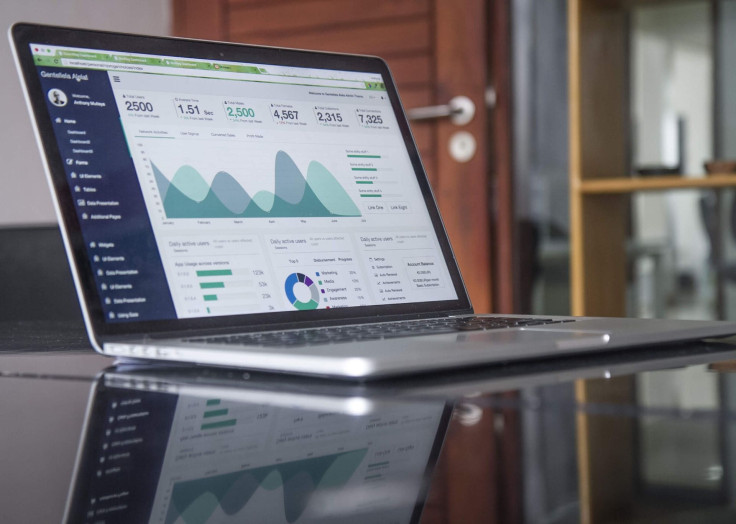Best Bookkeeping Software For Your Business

Even though you can't let your business finances run loose, finding the best bookkeeping software for your business can be a tough nut to crack. That's why there are loads of options in accounting software to help keep your business's books organized.
Once you've found the right bookkeeping software, you can bill your clients, keep an eye on the margins, and organize expenses.
The task comes in finding bookkeeping software with features pertinent to your organization's requirements. Accounting software that works for one company won't necessarily work for another, and the right fit will be determined by your business's size, budget, and income flow.
We've done some research for you to find three of the best bookkeeping software options for your business.

1. Small or Freelance Businesses: FreshBooks
FreshBooks offers an all-in-one accounting and invoicing solution for your business. It is optimized for start-ups and fledgeling enterprises.
There are no draconian limits imposed on FreshBooks users as opposed to other platforms, and the software is implicitly easy to use. You can generate your businesses customized receipts using the smartphone version, and you can easily integrate with tablets and desktop computers.
FreshBooks offers a basic bookkeeping plan that's $10 every month and comes with features that benefit both new and established businesses.
There are limits on the number of clients whose data can be stored in the software's address book. However, FreshBooks lets you send as many invoices as possible to each of your accommodated clients.
Lower FreshBooks plan tiers are better suited to young freelance businesses. You will upgrade to more pricey plans as your business grows, and more feature solutions are needed.
FreshBooks simplifies the generation and management of invoices and is a competent long term financial tracker.
2. User-Friendly Interface: QuickBooks
No other accounting software beats the QuickBooks user interface. It is a sort of magic formula for the age-old platform. Ask any certified accountant which software they burnt their fingers on, and chances are its QuickBooks.
As one of the most industry prominent bookkeeping software, QuickBook's name is synonymous with accounting for small businesses. An exceptional user experience helps this accounting platform provide all the right solutions with less fuss.
QuickBooks is a cloud-based solution that accessible with all devices on an internet connection. This bookkeeping software for your business also offered dedicated mobile apps to manage accounts on the go.
Due to the brand's weight in the market and the quality service on offer, QuickBooks costs are premium rates. If your business can afford this platform, its bookkeeping features will handle any accounting you throw at it.
QuickBooks's downsides include some third-party app integration and the fact that it's missing payroll and inventory tracking features.
3. On-a-Budget Bookkeeping: Wave
You can't beat a quality freebie. Wave accounting software is not only free, but it also lacks the usual embedded ads and caveats common with free source offerings. Any business can benefit enormously from Wave, especially if on a tight budget.
Users have the benefit of working with a slick dashboard and user-friendly interfaces.
Navigating around the platform is effortless, and you'll find that competing software lists most of Wave's free features as premium. You can manage multiple businesses with Wave, which makes it an ideal bookkeeping software for freelance entrepreneurs with multiple accounts.
Choosing a Bookkeeping Software

Whether you're a novice accountant or an expert bookkeeper, the right software will help you navigate the financial landscape of your business. But you won't have the same experience from one program to the next. To help you pick which program is best for you, keep in mind the following.
Identify Your Accounting Needs
What do you need your software to do for your business? Do you need to track your receipts, send invoices, or maintain a full-blown ledger? Additionally, consider whether or not you want to do your accounting strictly with a program. The alternative here is keeping a physical book to keep track of your accounting.
Don't be charmed by flashy features if you only need the basics. Extra features will only get in the way of what you have to do.
Understand Your Budget
Be honest about how much your business can comfortably spend on bookkeeping or accounting software. Avoid wasting time looking at accounting software that's above or beneath the scope of your business' spending power. Walk away from bookkeeping solutions that cost more than 25% of your projected total budget.
Evaluate Your Skill-Level
Choose software that's easy for you or your designated bookkeeper to use -- and learn. Technology is supposed to make our lives easier, not harder. So if you find yourself unsure as to whether or not you'll be able to successfully use a particular program, perhaps consider a different one. Questions to ask yourself:
- Am I tech-savvy?
- What is my knowledge of accounting?
- What do users say about the program?
Conclusion
The best bookkeeping software for your business will be determined by what your enterprise does, its size, and the stage of development it is at. Your businesses available accounting budget will be another factor that decides which platform you end up with.
Great options are available that will customize features according to the niche within which your business operates. With the best bookkeeping software it's easier to call in professional accountants for your businesses.
© Copyright IBTimes 2025. All rights reserved.





















